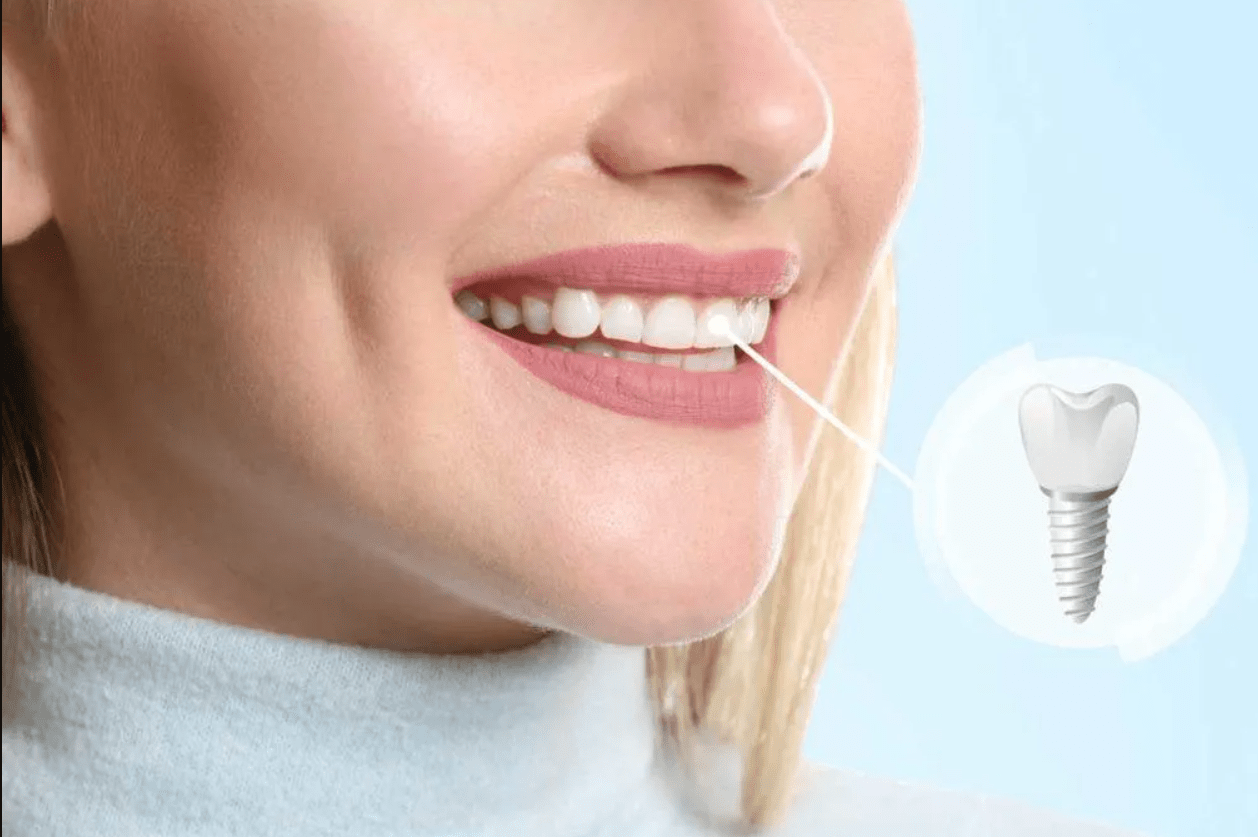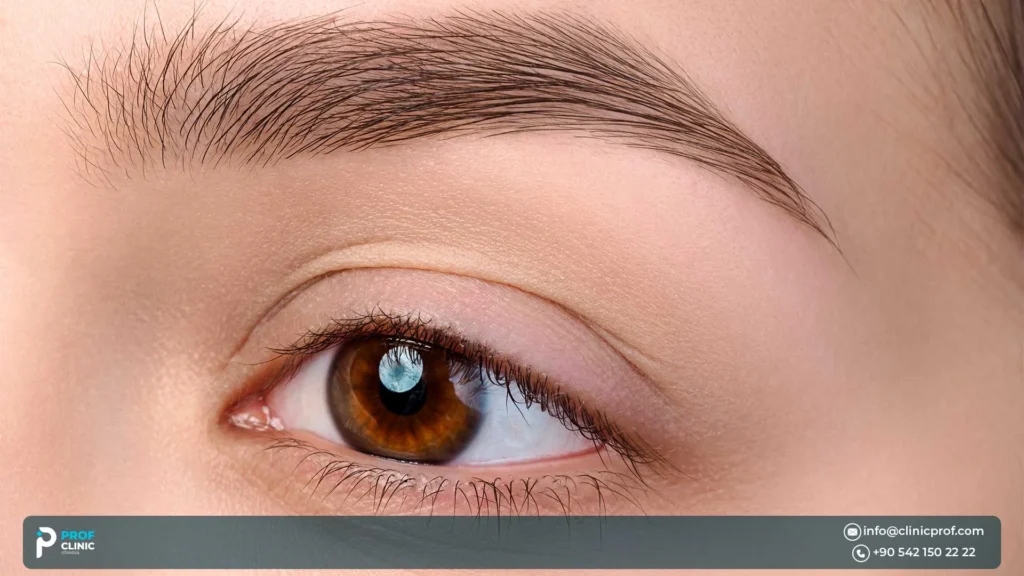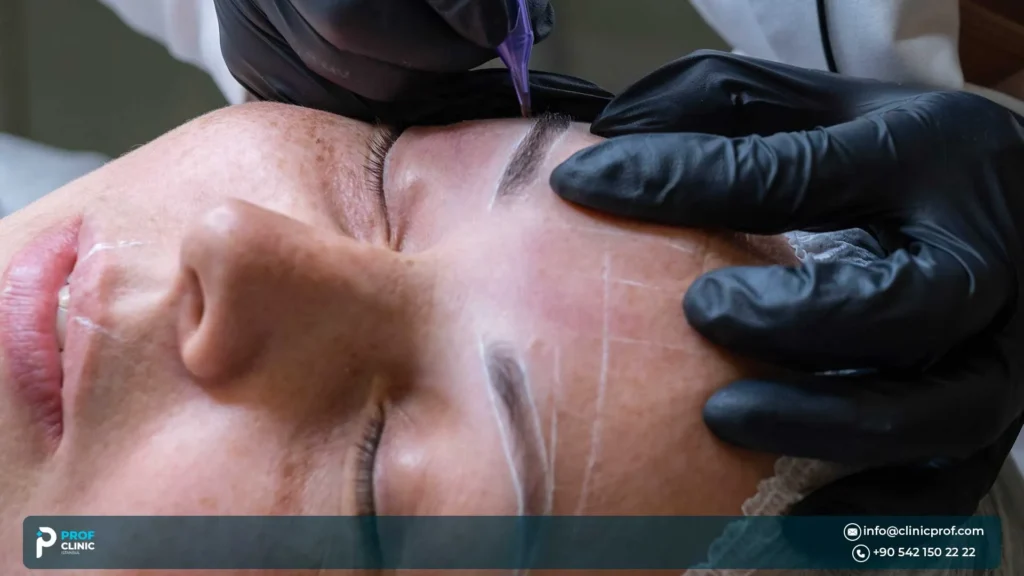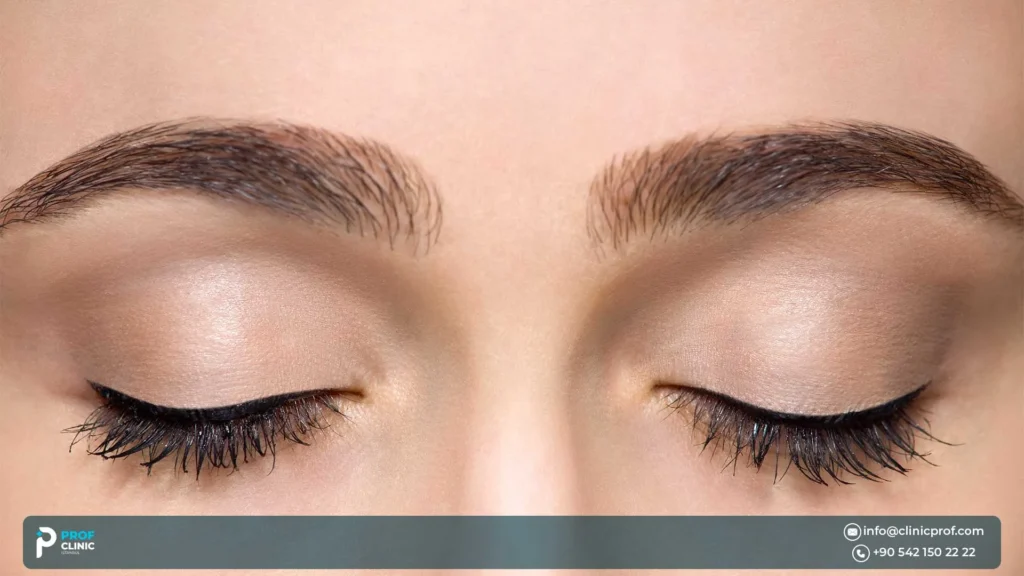For patients seeking a faster, less invasive alternative to traditional implants, Mini Dental Implants (MDIs) provides a practical solution for replacing missing teeth, without the need for extensive surgery or lengthy recovery periods.
In this guide, we’ll dive into the key benefits, drawbacks, and costs of MDIs, empowering you to make a well-informed decision.
Backed by the trusted expertise of Prof Clinic, your path to a confident, lasting smile begins here.
What Are Mini Dental Implants?
Mini dental implants (MDIs) offer a practical option for patients with limited bone structure or unstable dentures. With a smaller diameter than traditional implants, MDIs deliver strong, durable support without requiring complex surgical procedures.
MDIs are narrow, one-piece Titanium posts that:
- Measure less than 3 mm in diameter
- Are inserted directly through the gum without flap surgery
- Stabilize dentures or replace small missing teeth
- Can often be placed in a single visit with minimal recovery time
Unlike traditional implants, which demand more bone density and longer healing periods, MDIs provide a faster, less invasive alternative with dependable results.
At Prof Clinic, we specialize in tailored implant solutions, including MDIs, designed to maximize function with minimal downtime. Schedule your consultation today to find out if this innovative option is the right fit for your smile.
Also read: Dental Implant Pain: Causes, Period, & Solutions
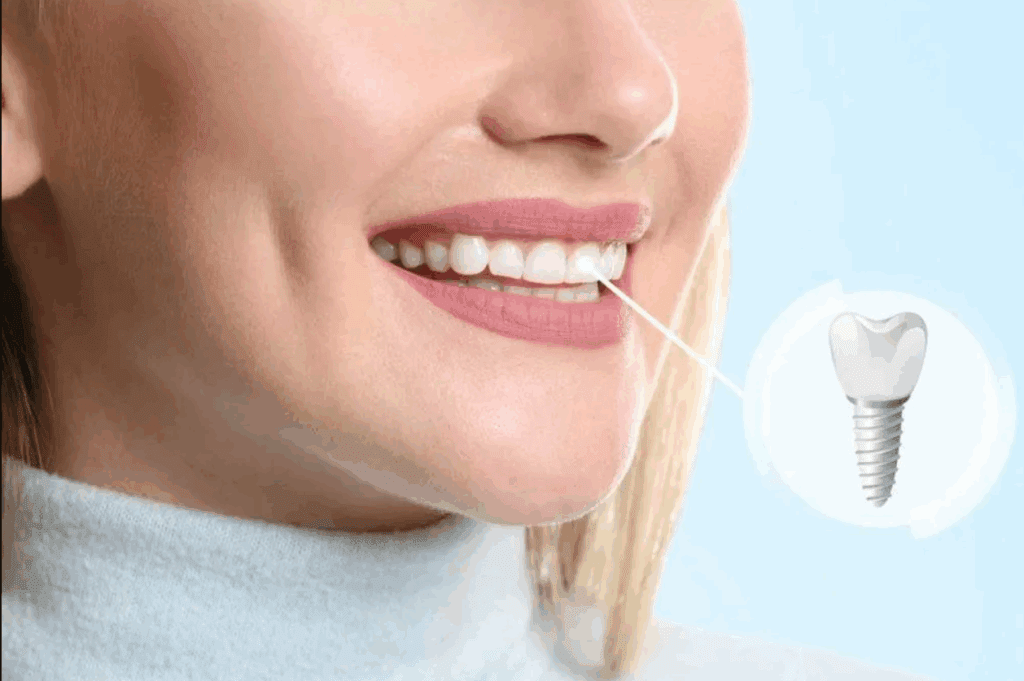
Mini Dental Implants VS Dental Implants
To help you choose the best solution for replacing missing teeth, here’s an expert comparison of mini dental implants (MDIs) and traditional dental implants. While both options restore function and aesthetics, they differ in size, placement technique, healing time, and long-term performance. The table below outlines the key differences in a clear, concise format:
| Feature | Mini Dental Implants | Traditional Dental Implants |
| Diameter | 2.0–3.0 mm (narrow) | 3.5–6.0 mm (standard) |
| Structure | One-piece (implant and abutment combined) | Two-piece (separate implant and abutment) |
| Surgical Approach | Minimally invasive; flapless | Requires incision, sutures, and healing flap |
| Healing Time | Faster; often immediate loading | Slower; typically 3–6 months for osseointegration |
| Bone Requirement | Minimal; suitable for low bone volume | Requires adequate bone or grafting |
| Primary Use | Stabilizing dentures, small or narrow spaces | Full tooth replacement: single, multiple, or full arch |
| Longevity | Shorter lifespan (5–10 years with care) | Longer-lasting (10–25+ years) |
| Cost | More affordable | Higher due to complexity and materials |
| Candidate Profile | Ideal for those with limited bone or on a budget | Suitable for patients seeking a permanent, high-function solution |
| Placement Timeline | Often placed in one visit | Requires multiple visits and stages |
At Prof Clinic, we provide expert guidance with precision and transparency, helping each patient select the ideal implant solution tailored to their goals, anatomy, and long-term needs. Whether you seek full functionality or a quick solution, our team is dedicated to restoring your confident smile.
Read also: Define Dental Implant: Comprehensive Guide
What are the Success Rates of Mini Dental Implants?
Considering a less invasive alternative to traditional implants? Mini dental implants (MDIs), despite their smaller size, deliver impressive performance when placed under optimal conditions. Understanding their success rates can help you make an informed decision.
MDI success rates typically range from 90% to 95% over 5 to 10 years, depending on several key factors:
- Bone quality and volume: Dense, healthy bone ensures long-term stability.
- Appropriate case selection: MDIs excel in denture stabilization and narrow spaces but are less suited for high-pressure biting areas.
- Hygiene and aftercare: Consistent daily cleaning and regular checkups significantly enhance implant longevity.
- Clinician expertise: Precise placement is critical due to the implant’s smaller surface area.
- Avoiding overload: MDIs must not be subjected to biting forces beyond their design capacity.
While slightly less robust than traditional implants in high-stress areas, MDIs offer excellent outcomes when expertly placed and properly maintained.
At Prof Clinic, we use advanced diagnostic tools and meticulous planning to ensure precise MDI placement, maximizing your treatment’s success. Trust our specialists to deliver durable, minimally invasive results.
Schedule your consultation at Prof Clinic today and take the first step toward a confident, lasting smile.
Also read: All on 6 Dental Implants: Everything you want to know
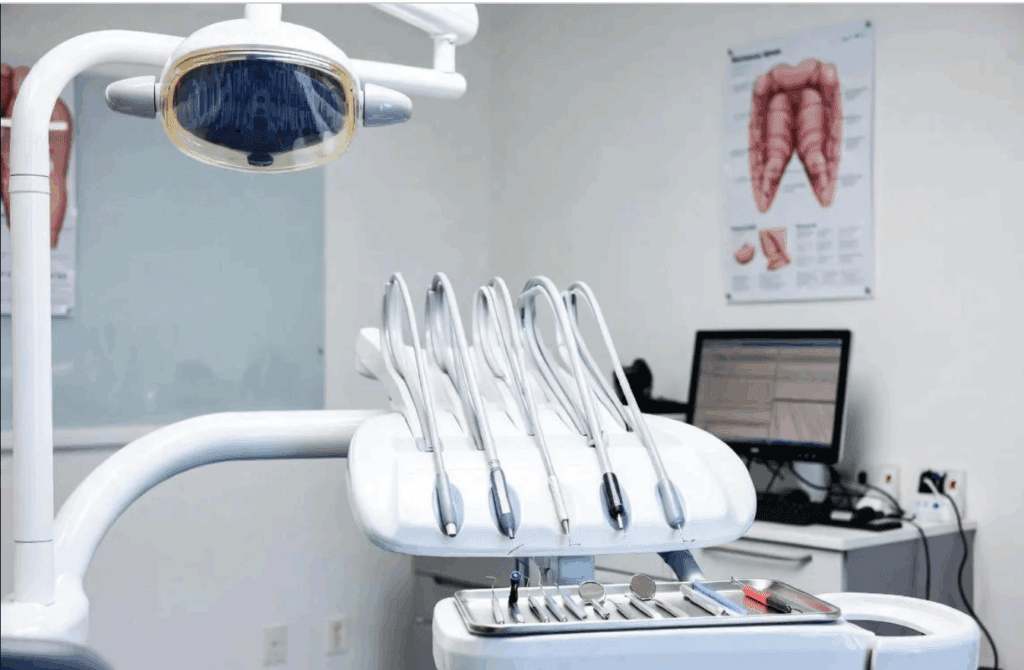
Pros & Cons of Mini Dental Implants
Selecting the best tooth replacement option starts with understanding the benefits and limitations of mini dental implants (MDIs). These small-diameter implants offer a minimally invasive way to stabilize dentures or replace individual teeth, but they’re not suitable for every situation. Below, we outline the key advantages and disadvantages based on clinical performance and real patient experiences.
Advantages of Mini Dental Implants
- Minimally Invasive Placement: Inserted without incisions or stitches, MDIs reduce discomfort and promote faster healing.
- Quick Recovery: Most patients resume normal activities within 24–48 hours, experiencing minimal swelling or downtime.
- Cost-Effective: MDIs are more affordable than traditional implants due to simpler procedures and fewer visits.
- Ideal for Narrow Jawbones: Requiring less bone volume, MDIs often eliminate the need for bone grafting.
- Immediate Functionality: Dentures can often be stabilized on the same day as implant placement.
- Safer for Medically Compromised Patients: Their less invasive nature makes MDIs suitable for those with certain health conditions.
Also read: The Best Smile Makeover: Transform Your Confidence
Disadvantages of Mini Dental Implants
- Shorter Lifespan in High-Stress Areas: While durable, MDIs may not last as long as traditional implants in areas with intense biting pressure.
- Limited Applications: Not ideal for full-arch restorations or replacing large molars that demand greater support.
- Risk of Overloading: Their smaller surface area increases the risk of stress-related failure if not properly placed or maintained.
- Fixed Design: The one-piece structure offers less flexibility for angle adjustments compared to two-piece implants.
- Not Suitable for Severe Bone Loss: While less bone is needed, significant resorption may still require grafting or alternative solutions.
At Prof Clinic, we use advanced imaging and precise diagnostics to evaluate whether MDIs are the best fit for your smile, comfort, and long-term dental health. Trust our specialists to guide you toward the safest, most effective solution for your needs.
Read also: What do dental implants look like?
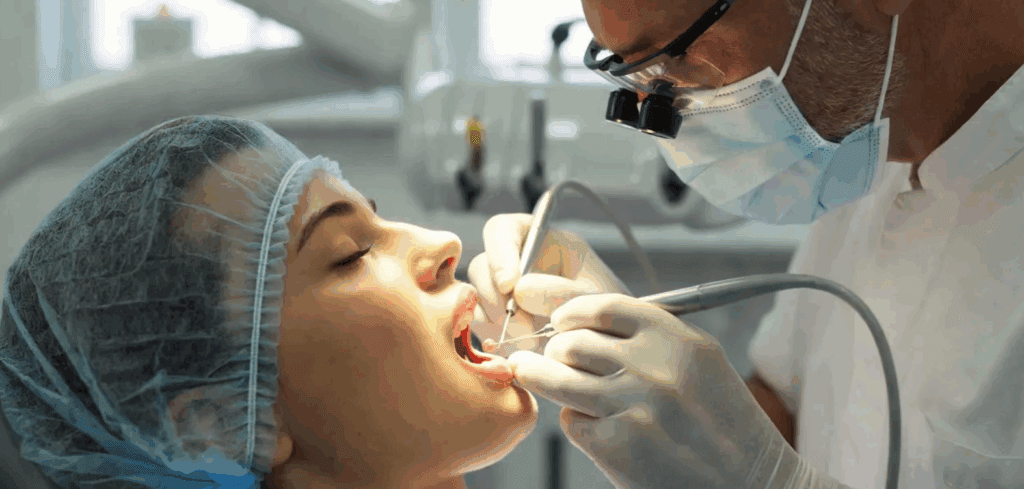
Mini dental implants cost
Knowing the mini dental implants price is key to making an informed and practical treatment decision. MDIs are often a more affordable alternative to traditional implants, delivering excellent functionality at a lower price—particularly when placed by skilled specialists using efficient, minimally invasive techniques.
Costs vary depending on factors such as the number of implants, the complexity of the case, and the clinic’s expertise. Below are typical price ranges to help set your expectations.
Full-mouth mini dental implants cost
Replacing a full arch typically requires 4 to 8 mini dental implants (MDIs) to secure a denture. The average cost for a full-mouth solution (upper or lower arch) ranges from:
- $6,000 to $12,000 per arch: This typically covers consultation, 3D imaging, implant placement, and the stabilized denture.
Also read: What is the best option for your Dentures vs Veneers?
Factors That May Increase Costs:
- Use of premium denture materials
- Additional implants or realignment procedures
- Advanced digital planning or sedation
Single-Tooth Replacement with Mini Dental Implants
For replacing a single missing tooth, MDIs offer a cost-effective option, with prices generally ranging from:
- $1,000 to $2,500 per implant: This includes the implant, abutment, and a custom crown.
This option is ideal for:
- Small spaces or narrow gaps
- Patients with limited bone volume
- Low chewing pressure areas (e.g., front teeth)
At Prof Clinic, we offer transparent, personalized pricing with no hidden fees. Every treatment plan is tailored to your anatomy, goals, and budget, ensuring expert care and lasting value at every step. Schedule your consultation today for a precise quote customized to your needs.
Also read: How Much Does a Mommy Makeover Cost in Turkey? Safety, Benefits
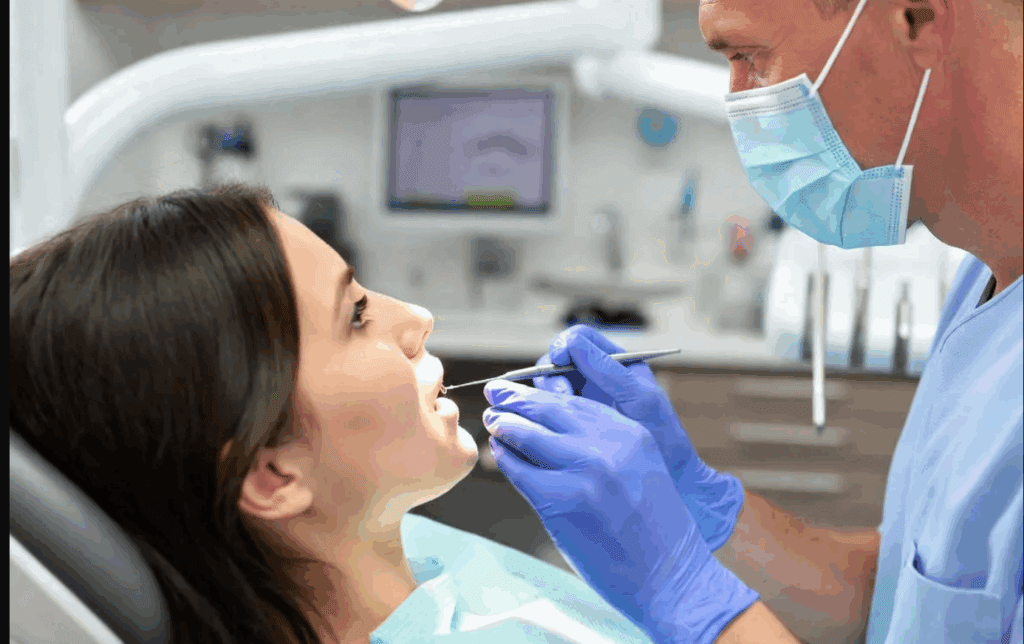
Prof Clinic for the Best Dental Implants in Turkey
At Prof Clinic, one of Turkey’s premier centers for advanced implant dentistry, we combine exceptional dental care with luxury hospitality. Our mission goes beyond restoring your smile—we transform your entire medical experience.
Whether you’re considering mini dental implants, full-arch restorations, or minimally invasive procedures, our clinic delivers functional, aesthetic, and lasting results using state-of-the-art technology and the expertise of internationally trained specialists.
What Sets Prof Clinic Apart
- VIP Medical Tourism Services: From the moment you arrive in Istanbul, we manage every detail with precision, ensuring a seamless and stress-free experience.
- Luxurious Accommodations: We partner with top-tier hotels renowned for their elegance and privacy, providing a comfortable and refined stay during your treatment.
- Unparalleled Expertise: Our skilled professionals deliver world-class care, leveraging advanced 3D diagnostics and guided implantology to prioritize your safety, satisfaction, and results.
With transparent pricing, multilingual support, and fully personalized treatment plans, Prof Clinic is a trusted leader in dental implants and health tourism in Turkey.
Begin your journey today by contacting us via WhatsApp at Prof Clinic—your perfect smile is just a message away.
Also read: Are Turkey Teeth Safe? A Complete Guide to Veneers and Dental Implants in Turkey
FAQs about mini dental implants:
How long do mini dental implants last?
Mini dental implants (MDIs) typically last 5 to 10 years, depending on factors like bite pressure, oral hygiene, and lifestyle habits. With diligent care and regular checkups, many MDIs can remain functional well beyond a decade, especially if protected from excessive stress.
What is the downside of mini dental implants?
- Shorter lifespan compared to traditional implants
- Reduced stability in high-pressure chewing areas
- Not suitable for all full-arch restorations
- One-piece design limits prosthetic flexibility
What is a mini dental implant?
A mini dental implant is a narrow titanium post, typically less than 3 mm in diameter, designed to support crowns or stabilize dentures. Placed with minimally invasive, often flapless surgery, MDIs are ideal for patients with limited bone volume or narrow spaces.
Can you eat with mini dental implants?
Yes, you can eat confidently with MDIs once healing is complete. They restore chewing function for most soft to moderate foods, though caution is advised with hard or sticky items, particularly during the initial adjustment period.
Can mini implants be done in one day?
Yes, many MDIs can be placed and loaded in a single visit, especially for denture stabilization. Their minimally invasive design often allows for immediate functionality in suitable cases, significantly reducing treatment time.
Who is a good candidate for mini dental implants?
MDIs are well-suited for those seeking cost-effective, low-impact solutions for smaller restorations or denture support. Ideal candidates include patients with:
- Stable overall health.
- No severe teeth-grinding habits.
- Consistent oral hygiene practices.
- Adequate but limited bone volume
- Realistic expectations about function and durability.

